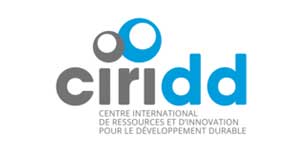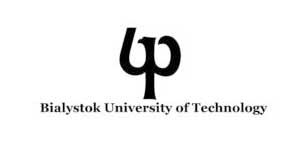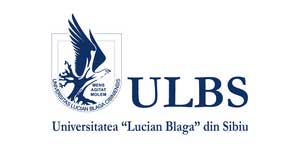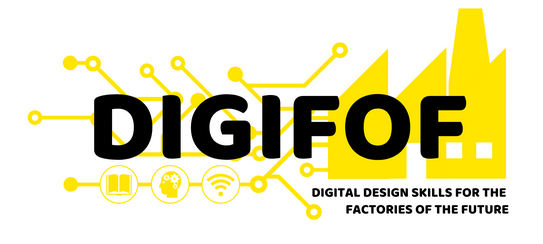Partners


UNIVERSITY OF OULU
The University of Oulu has 8 faculties, 13 500 students and 2 800 staff. The Biomimetics and Intelligent Systems Group part of the Faculty of Information Technology and Electrical Engineering is a fusion of expertise from computer science and biology. In BISG, our bread and butter is intelligent systems, including data mining, machine learning, robotics, and information security, with applications to industrial manufacturing processes, and environmental monitoring with mobile robots. Robotics research includes collaborations with e.g. processing industry. In addition, BISG also aims to provide new openings to achieve better and concrete synergies and integration of ICT and biotechnology, with applications to personalized medicine. BISG has conducted research in national and international research projects funded by the Academy of Finland AoF, the Finnish Funding Agency for Innovation Tekes, as well as in collaboration with the Japan Society for the Promotion of Science JSPS, the USA National Science Foundation NSF, and the European Union, including many robotic projects. BISG has been granted funded research from AoF and Tekes for more than 10 M€. BISG has spun off more than ten enterprises, e.g. Codenomicon, Clarified Networks, Atomia, Probot, IndooAtlas. BISG regularly organizes summer schools in robotics and information security, which attract international participants, especially from Europe.
Juha RÖNING
Juha.Roning[at]oulu.fi
+358 40 5181621


CLEXTRAL
Established in 1956, CLEXTRAL is French SME, part of an international industrial group (Legis Industries). Group Legis Industries is a diversified industrial group which provides support of medium-sized industrial firms offering higher levels of technical expertise and potential to win leading market positions. CLEXTRAL is the world leader in twin-screw extrusion technology and turnkey plants for food processing, paper pulp, specialty chemicals and biomaterials. It pioneered this technology, and for the last several years, as more responsible industrial production has become a priority worldwide, CLEXTRAL has developed our expertise and remained at the forefront of responsible and sustainable manufacturing processes and R&D. linked to the internationalization, CLEXTRAL has progressively developed a strategy oriented on service development, which is today associated with new industrial innovation projects towards industrial Digitalization and Factory of the Future.
Gilles MALLER
gmaller[at]clextral.com


ECOLE NATIONALE SUPERIEURE DES MINES DE SAINT ETIENNE
Established in 1816, and part of the French « Grandes Ecoles » system, the Ecole des Mines (EMSE) ensures 3 key missions: education, research and dedication to economic development. Education is based on a well-balanced blend of scientific core subjects, engineering techniques and economic and human sciences taught by professors closely related to the economic world. The graduates from EMSE have been at the forefront of technological progress in the whole industry, in France and abroad. EMSE has opened its horizons to international partnerships with 35 countries in Europe, Asia, North and South America. Today, EMSE has more than 80 academic partners worldwide, 19 double-diploma agreements as part as its Executive Engineering degree program, and research partnerships with the world’s top universities.
Through several national and international projects and via FAYOL Research Institute (Center for Industrial Engineering and Environmental Sciences) EMSE is currently developing a strong research expertise on Factory of the Future, and brings to the FoF Designer project an internationally recognized expertise on Product-Service-Systems (PSS) on its scientific, industrial and educational dimensions. FAYOL Institute develops integrated methodologies, modelling environment and decision-making supports transition towards PSS and industrial digitization.
Xavier BOUCHER
xavier.boucher[at]mines-stetienne.fr
(+33) 4 77 42 01 33


CIMES
CIMES is devoted to design, production and integration of intelligent mechanical systems. Its members (SMEs and groups, research and/or education bodies) bring skills that are coordinated and highlighted in 4 thematics: Surface Engineering and Processes, Advanced Manufacturing, Intelligent Systems and Robotics, Engineering driven by Uses and Services.
CIMES is located in the first French region on mechanical engineering regarding either scientific streght devoted to system engineering (CNRS statistics) or business in industrial outsourcing in the field of mechanics. Since 2005, CIMES labelled more than 415 R&D collaborative projects. More than 200 were funded: they involved more than 499 companies and 342 labs. 60 funded projects are deeply linked with the Factory of the Future domains (in the light of EFFRA’s roadmap).
CIMES is composed of 8 collaborators. The cluster has a total of 160 members, out of which 85 are SMEs. A total of 400 enterprises are comprised in CIMES through local cluster partnerships.
Arnaud BOCQUILLON
a.bocquillon[at]cimes-hub.com
(+ 33) 6 20 05 45 77


CIRIDD
The International Center for Resources and Innovation for Sustainable Development, an association constituted in accordance with the French law of 1901, was created in 2005 and is recognized as being of general interest. It aims to engage economic stakeholders, local authorities and business networks in the appropriation and implementation of collective processes of change for sustainable development, such as: circular economy, functional economy, industrial and territorial ecology.
Following a first collective action on the functional economy started in 2009, CIRIDD decided to create a club in order to keep the momentum going. The club was officially launched by CIRIDD on September 27, 2011 under the name Club d’acteurs pour une économie de Fonctionnalité (CLEF club). The club’s field of action is PPS and functional economy, both in its theorical domain and its operational implications with companies and local authorities.
CIRIDD is currently leading the CLEF Club within its initial regional scope: the Auvergne-Rhône-Alpes region. It aims to coordinate and implement collective work with its members to promote companies’ transition towards this model and enhance regional deployment of the functional economy. The CLEF Club therefore aims to bring together all entities with an interest in deploying the functional economy in the region and to support companies which engage in collective or individual initiatives. The club’s aim is to develop tools and methods for heightening awareness, training and diagnosis, and assisting companies in their transition to a functional economy.


OMILAB
The OMiLAB gGmbH is a non-profit organization (NPO) with headquarter in Berlin. Its aim is to build and support a community network of localized OMiLABs focused on different disciplines across the world. In order to achieve this, the NPO enters into cooperation with non-profit bodies and public corporations and pursues activites aimed at bringing together experts and stakeholders from different scientific disciplines and application domains. The aim is to consolidate common knowledge and advance the associated software development, to design a future research and development framework for modelling and to support the exploitation of results in global communities based on open platforms.
The OMiLAB NPO has already two localized design laboratory installations one at the University of Vienna (Austria) since 2010 and one at the University of Chonbuk (Korea) since 2015. The NPO makes available to the community an open-source micro-service portal as well as different community-driven open source diesgn tools (currently more than 40). In addition, the NPO provide knoqledge transfer services, trainings and networking events to the community members. Since 2014, the NEMO Summer School Series is part of the NPOs international education portfolio.
Wilfrid UTZ
digifof[at]omilab.org
0049 30 26 36 78 63


UNIVERSITY OF BERGAMO
The University of Bergamo (UNIBG) is a powerful and significant presence in the Northern Lombardy, the richest region of Italy. UNIBG is one the youngest universities in Italy, officially founded in 1968 thanks to the support of several funding associations and agencies coming from the business world. UNIBG strengths are the wide range of courses offered, the excellent use of the numerous laboratories available to students, the ambitious research centers, and the fact that the University operates in one of the most dynamic areas of Italy, from both a cultural and an economic viewpoint. The Engineering Campus has more than 10 000 square meters of laboratories, most of them financially supported by industries and firms of Northern Italy. More than 100 professors, researchers and PhD candidates, working in different fields of industrial engineering, compose the Department of Management, Information and Production Engineering. The research group directly involved in the project operates within the researches and technology transfer projects in the fields of Supply Chain Management, Service Chain Management and Industrial Asset Management.
Roberto PINTO
roberto.pinto[at]unibg.it


ASSOCIAZIONE FABBRICA INTELLIGENTE LOMBARDIA
AFIL is the outcome of a Lombardy-Region-led process aiming to set-up a network of clusters interested in carrying out, at national and at international level, an integrated sustainable system of infrastructures, competences and methodologies supporting research and innovation. It is a private, non-profit legal entity representing a network of companies, universities, public or private research institutions and entities (including financial ones) operating in the field of intelligent factory (Advanced Manufacturing). AFIL operates as the private part of a public-private network with Regione Lombardia dedicated to advanced manufacturing and its members are located in different territorial areas and focused on specific application fields. The cluster aims at promoting and facilitating research and innovation as regards to best practices and enabling technologies for the manufacturing sector in order to support and develop the Lombard production system’s leadership and competitiveness.
The mission of the cluster can be summarized as follow:
- To set-up a stable community by connecting companies, universities, research institutions and associations, thus favouring cooperation by promoting research and innovation projects and initiatives,
- To be a reference actor for the region for the defining of research and innovation strategies in the manufacturing sector,
- To support the development of a research and innovation extra-regional network through the participation to CFI – intelligent factory national cluster and the connection with different European regions within smart specialization strategies.
Andrea MAZZOLENI
andrea.mazzoleni[at]afil.it
(+39) 030 7741139


BIALYSTOK UNIVERSITY OF TECHNOLOGY
Bialystok University of Technology (BUT) established in 1949 as a Private Evening Engineering College and acquired its university status in 1974. At present there are nearly 12 000 students studying at BUUT in its 7 faculties. We cooperate with 37 academic centers across the world within the framework of bilateral scientific agreements. BUT staff have been taking part in both national and international scientific research and didactic programs, including Erasmus+ program.
Considering the number of students, the Faculty of Engineering Management (FEM) is currently the second largest faculty at Bialystok University of Technology with over 1 600 students. So far, more than 15 000 graduates have completed studies at the FEM. BUT-FEM is participating within the computer labs with a relevant software for process modelling and simulation. The team is skilled in process analysis and designing. Moreover, BUT-FEM conducts students’ competence certification program in the field of process management.
Our current international research projects focus on strengthening smart specialization by fostering transnational cooperation. Furthermore, actually conducted projects aim at transforming university entrepeneurship education, company training and business practice and developing the original educational offer. BUT-FEM is developing its educational offer in the area of process engineering concurrently with the Factory of Good Engineer lab in the scope of Integrated University Program financed by Polish Ministry of Science and Higher Education.
Arkadiusz JURCZUK
a.jurczuk[at]pb.edu.pl
(+48) 85 746 98 80


BOC INFORMATION TECHNOLOGIES CONSULTING SP.Z.O.O
BOC Information Technologies Consulting SP.z.o.o is part of the BOC Group. It was founded in 2002 with headquarters in Warsaw. Starting with global customers support on the Polish market, BOC-PL constantly developed service portfolio, including Polish version of BOC products.
BOC-PL provides its customers with competence and assists them in identifying their IT potentials, optimizing their business processes, better utilizing their knowledge assets and the optimal deployment of their human and IT resources. BOC-PL has successfully implemented a number of re-organization projects in the banking, manufacturing, insurance and public administration sectors.
BOC’s products and services bring its customers the expertises and functionality being second to none, and primarily in the following application areas:
- Business process optimization/business process reengineering,
- Development of e-business and e-learning applications,
- Quality management/ISO 900x certification and support,
- Information management and process-based requirements specification and application,
- Process costing and controlling,
- Personnel training and qualification management.
BOC-PL actively supports leading Polish Universities in promoting BPM concepts by proving software tools and trainings for educational purposes. BOC-PL employs 10 skilled professionals in the area of consulting/training and software development.
Michał KOSSOWSKI
michal.kossowski[at]boc-pl.com
(+48) 60 8 355 788


INNOVATION AND DEVELOPMENT PROMOTION CENTRE
IDPC is a NGO association established in 2005. With more than 11 years of existence, the association implemented 45 projects co-financed by the European Union funds and another funds sources, aimed at socio-economic development, entrepreneurship, vocational training and cross-border cooperation projects.
IDPC is coordinator of Metal Processing Cluster (MPC) with over 70 companies from metal branch in the fields of services, production and trade, but also universities, business support organizations and self-government authorities mainly from the north-east Poland. There are national and global leaders with great innovative potential for development. The companies associated within the cluster give over 7 500 jobs for employees with different levels of specialization. Companies have high export potential, near 40% of their revenues are from foreign sale.
The cluster was awarded status of “Key National Cluster” (one out of seven in Poland) by the Minister of Economy of the Republic of Poland in 2015. The activities of metalworking cluster are directed on supporting the innovation process in production and promotion of goods, internationalization and determining the future direction of teaching the metalworking industry staff.
Specialization of the cluster: manufacturing, machinery and agricultural equipment, food industry, production for the medical, orthopaedics sector, manufacturing of sailing gear for the yacht industry.


UNIVERSITY LUCIAN BLAGA SIBIU
The Lucian Blaga University of Sibiu is one the oldest Romanian universities. ULBS has established academic links and partnership agreements with 85 universities in 35 countries. A special place is held by the partnerships drawn with American, German, French and English universities. The educational offer of ULBS is diverse and the study programs are compatible with those of the EU. Approximately, 15 000 students study each year at Lucian Blaga University of Sibiu. They are coordinated by more than 800 professors and teaching staff in 10 faculties.
ULBS is participating within the Cyber-Physical Systems Engineering Labs (CPSE labs) with a relevant experiment for building a new prototype for Continental Automotive Systems Sibiu that prove the feasibility of an integrated product-production co-simulation for cyber-physical system. ULBS is also an active member of the COST Action IC1404 – Multi Paradigm Modelling for Cyber-Physical Systems and one of the academic users of the integrated tool chain for model-based design of cyber-physical systems (INTO-CPS). The CPSE Lab experiment is employing collaborative, multi-paradigm modelling approaches that combine the heterogeneous models of a CPS developed with various tools into holistic models that can be analysed by co-simulation using the INTO-CPS integration platform.
Adrian FLOREA
adrian.florea[at]ulbsibiu.ro
+40 745 806455


SOCIETY OF COLLABORATIVE NETWORKS
SOCOLNET is an international technical and scientific association, not for profit, that aims ar promoting and stimulating scientific research, education, technological development, scientific and technical interactions, among researchers in the area of Collaborative Networks, including virtual organizations, virtual enterprises, virtual communities, virtual laboratories, and related areas.
In order to pursue its objectives, the society may carry out all the activites that it deems necessary or appropriate and in particular, may:
- Promote the exchange of ideas and experiences among its members, and between them and the rest of the scientific community in order to increase the knowledge of the area,
- Promote activities such as seminars, courses, colloquia, conferences, workshops …
- Promote and sponsor the edition of publications relevant for the objectives of the association,
- Propose education curricula on collaborative networks,
- Promote studies and research actions on collaborative networks,
- Collaborate with other organizations.
SOCOLNET is registered as a technical-scientific association in Portugal and currently it has 346 members in 49 countries. Annually, it organizes conferences such as PRO-VE (Virtual Enterprises/Collaborative Enterprise Networks) and DocEIS (Doctoral Conference on Computing, Electrical and Industrial Systemps).
Luis M. CAMARINHA-MATOS
cam[at]uninova.pt


CLUSTER METAL MANUFACTURING TRANSILVANIA (PRELMET TRANSILVANIA)
Cluster Metal Manufacturing Transilvania is a cluster in Central Romania comprised of 40 SMEs, three universities, two municipalities, two local administrations, four facilitators and one industrial park. Its members work in the metal processing industry. Its main objective is to grow the efficiency of its members and to reduce the gap between the national level of economic development and EU. The goal represents the economic growth of the companies that are members in the cluster. Prelmet aims to achieve this goals by providing:
- Specialized human resource,
- Common specialized clients and providers,
- Educational infrastructure adapted to companies’ needs,
- Knowledge and information dissemination.
Bele IOAN
beleioan[at]gmail.com


CONTINENTAL AUTOMOTIVE SYSTEMS SRL
Continental develops intelligent technologies for transporting people and their goods. As a reliable partner, the international automotive supplier, tire manufacturer, and industrial partner provide sustainable, safe, comfortable, individual and affordable solutions. In 2016, the corporation generated preliminary sales of around € 40.5 billion with its five divisions, Chassis and Safety, Interior, Powertain, Tire and ContiTech.
Continental currently employs more than 220 000 people in 55 countries. In Sibiu, Continental is present with more Business Units in production and R&D areas and currently more than 3 300 people are employed. Several Industry 4.0 Smart Factory initiatives have been started.
Cosmin SIDERAS
cosmin.sideras[at]continental-corporation.com
